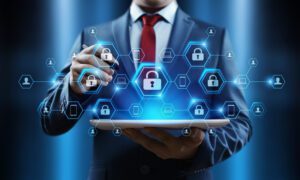Cybersecurity is the practice of protecting computers, networks, and digital data from malicious agents who seek to gain access to important data to either damage, destroy, or steal. It is a field that grows more important each day as the digital world becomes more and more integrated into our daily lives.
However, while cyber attacks and threats are indeed increasing for the average person, those most affected are businesses and companies that hold valuable information and have much to lose.
In today’s article, we are going to take a look at what the future of cyber security looks like and some of the possible trends that we are likely to see soon.
A Growing Need for Cybersecurity Partners
Of the many developments that are set to occur, the most easily predictable is how important it will be to have good cybersecurity partners. This is an industry that is heavily specialized and requires you to always be at the tip of the spear. Most businesses at risk of cyber attacks would rather partner with experts rather than try to develop an in-house team, which can be expensive and time-consuming.
Sure, some of them might try to develop a basic team within the company, but it isn’t going to match the expertise that comes from a firm that is solely dedicated to cybersecurity.
Hiring experts certainly can be beneficial. They help out with security at the endpoint, the overall security for your website, emails, and many other areas. This is why firms like Trusted Cyber Partners in Practice, operated by SecTheory, manage to get so popular.
Their services cover various aspects, including penetration testing, threat modeling, risk management, digital forensics, and project management. These remain the most effective counters to cyber-attacks and recovery management.
Yes, some firms, due to their size and the quality of their work, may charge a premium for their services. But when it comes to data protection (a lack of which can destroy your company and its reputation), it can be worth it.
Regardless, we are likely going to see a lot of potential for partnerships for both cyber-security companies and businesses.
AI vs. AI
The dangers of AI are something that has been predicted by people for decades. It is honestly a little curious how we have always fantasized in some way about having our creations turn against us or be used to cause harm.
Though it focuses more on a robot, the 1927 German silent film “Metropolis” features a robot that seeks to create chaos among humans, possibly the earliest depiction in pop culture of this sentiment. It reflects a rather interesting parallel that we now see with a lot of people who fear AI might have the same dangers.
However, at present, the dangers mainly come from those who seek to use AI as yet another tool to infiltrate businesses, cause harm and steal information.
The development of new AI models for the purpose of countering this is something that is in development already and will emerge as an important concept very soon.
Even back in 2016, there were reports of the Massachusetts Institute of Technology (MIT) developing a model that would help predict cyber-attacks and point out areas of potential security breaches.
Convincing Phishing Attacks
Coming to a more immediate but prominent threat is the increasing sophistication of phishing emails to the point that even those who might usually consider themselves “tech-literate” are starting to be fooled by them.
Typically, phishing emails have a number of tell-tale signs that make them easy to spot. Many of the scammers who send phishing emails are usually not native English speakers, and it is easy to spot odd grammar and phrases in what is supposed to be an official email from an international company.
Now however, with models like ChatGPT, it is possible for people to create an email that is indistinguishable from a typical email from a corporate company and unless you are actively trying to spot the difference, you too might fall for it.
This development has got people worried, and there are a number of articles that have started to warn people about the potential rise of a new era in terms of convincing phishing emails.
Conclusion
Cyber security is one of those areas where constant upskilling is an essential requirement. There are simply too many developments and changes in this field, which makes it dangerous to remain stagnant.
Hackers and cybercriminals keep finding new ways to overcome and bypass protections, and cybersecurity professionals keep developing more robust defenses.
This back-and-forth seems to be a dance that can’t be stopped, so the best option is to always be on top of the game. With AI models and Quantum Computing becoming realities (the latter still in its very early stages, though), it is indeed both chilling and exciting to see what the future holds.






































